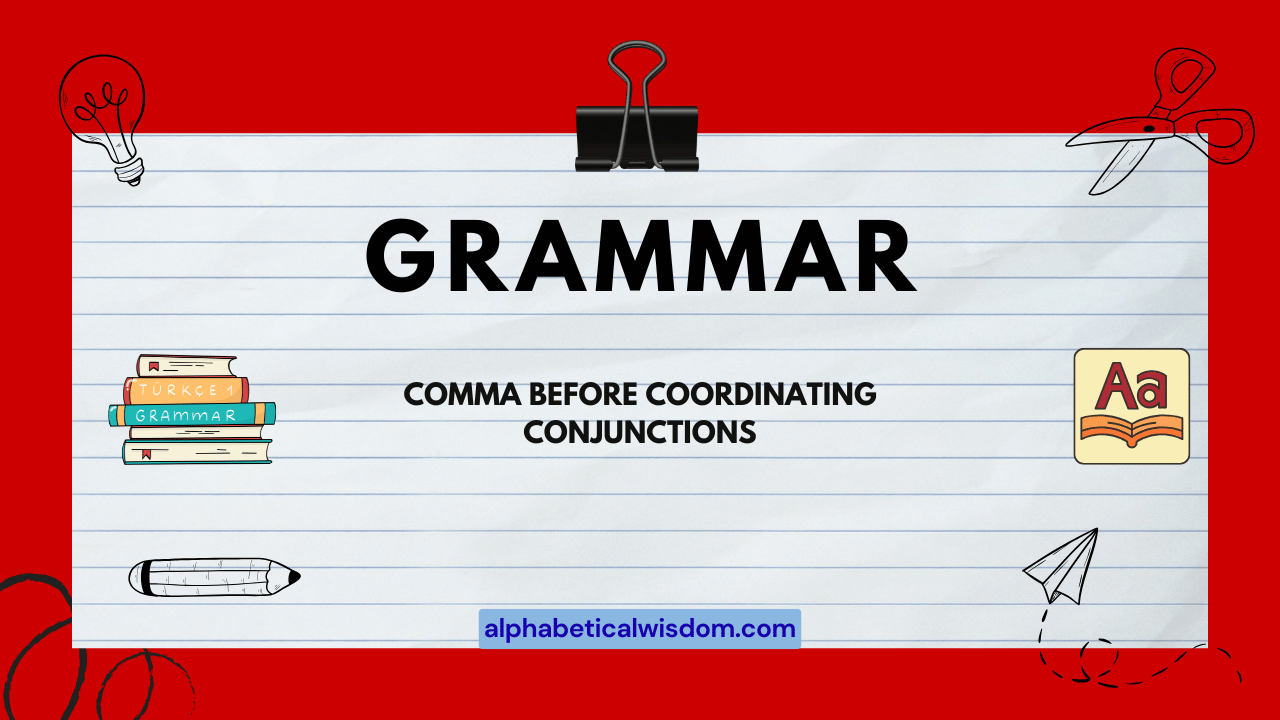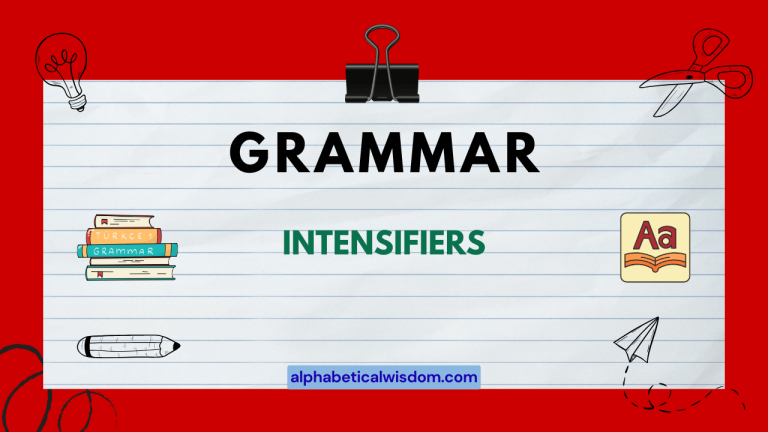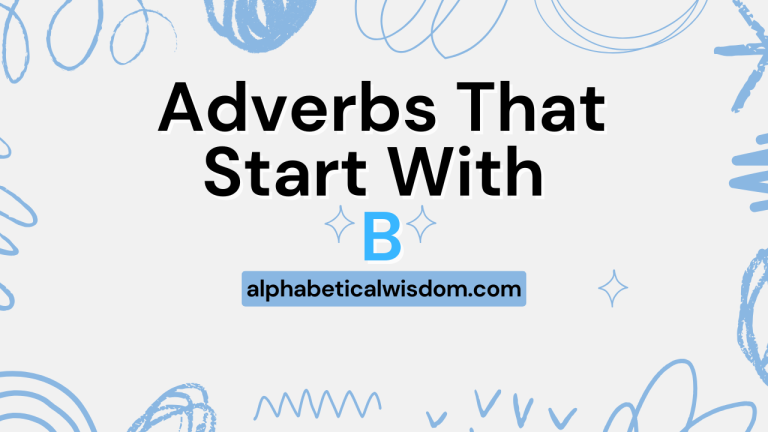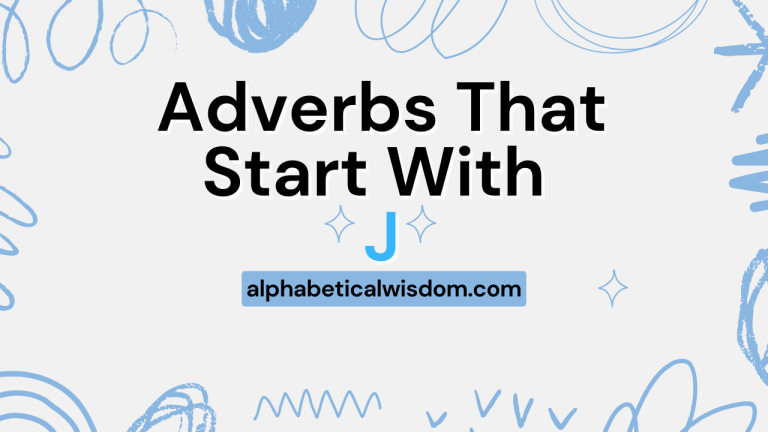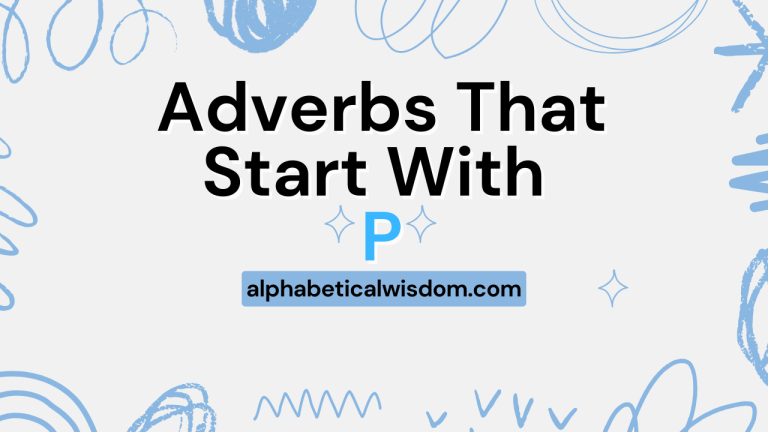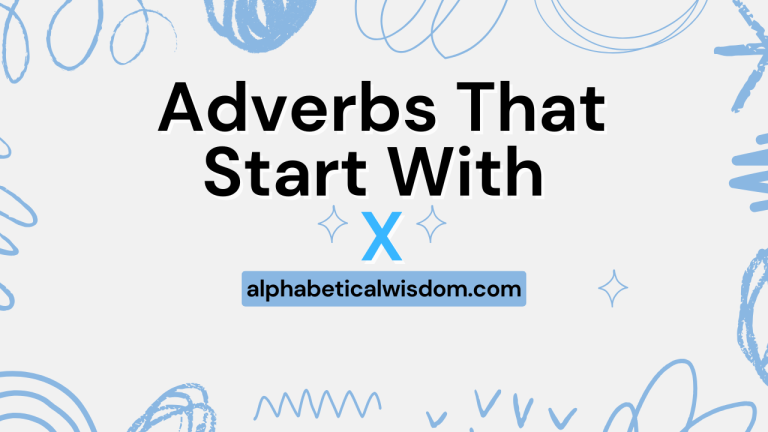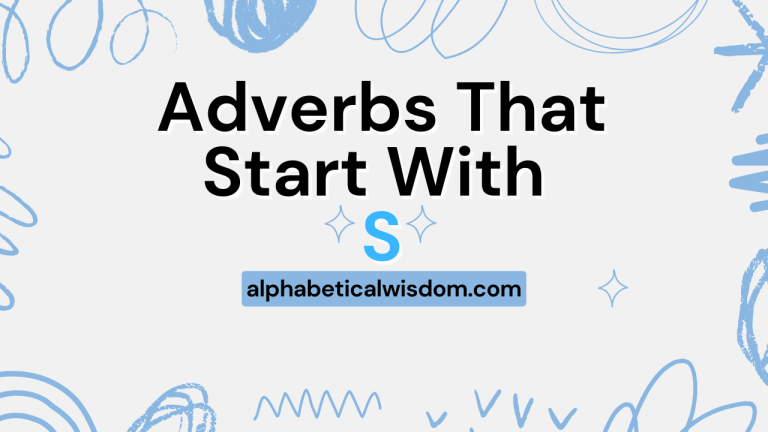Comma Before Coordinating Conjunctions: Mastering Compound Sentences
Understanding the proper use of commas, especially before coordinating conjunctions, is crucial for clear and effective writing. This rule governs how to join independent clauses, ensuring sentences flow smoothly and avoid ambiguity.
Mastering this skill enhances sentence structure, improves readability, and elevates overall writing quality. This article is designed for English language learners, writers seeking to refine their skills, and anyone who wants to understand the nuances of comma usage in compound sentences.
By mastering the comma before coordinating conjunctions, you will be able to construct more complex and sophisticated sentences, express your ideas with greater precision, and avoid common grammatical errors. This knowledge is essential for academic writing, professional communication, and everyday correspondence.
This comprehensive guide covers everything from the basic definition and function of coordinating conjunctions to advanced usage scenarios and common mistakes. With clear explanations, numerous examples, and practical exercises, you’ll be well-equipped to confidently apply this important grammatical rule.
Table of Contents
- Definition: Comma Before Coordinating Conjunctions
- Structural Breakdown
- Coordinating Conjunctions: FANBOYS
- Independent Clauses
- Types of Sentences
- Examples: Comma Usage with Coordinating Conjunctions
- Examples using ‘for’
- Examples using ‘and’
- Examples using ‘nor’
- Examples using ‘but’
- Examples using ‘or’
- Examples using ‘yet’
- Examples using ‘so’
- Usage Rules
- Common Mistakes
- Mistake 1: Missing Comma
- Mistake 2: Unnecessary Comma
- Mistake 3: Comma Splices
- Mistake 4: Run-on Sentences
- Practice Exercises
- Advanced Topics
- FAQ: Frequently Asked Questions
- Conclusion
Definition: Comma Before Coordinating Conjunctions
A comma is used before a coordinating conjunction when it connects two independent clauses. An independent clause is a group of words that contains a subject and a verb and can stand alone as a sentence. A coordinating conjunction is a word that joins words, phrases, or clauses of equal grammatical rank in a sentence.
The purpose of the comma in this context is to separate the two independent clauses, making the sentence easier to read and understand. Without the comma, the sentence can appear run-on or confusing.
In essence, the comma acts as a signal to the reader, indicating a pause and clarifying the relationship between the two clauses. It ensures that the sentence is grammatically correct and stylistically clear.
Structural Breakdown
The basic structure is: Independent Clause + , + Coordinating Conjunction + Independent Clause. Let’s break down each component:
- Independent Clause 1: Contains a subject and a verb and expresses a complete thought.
- Comma (,): Separates the two independent clauses.
- Coordinating Conjunction: Connects the two independent clauses.
- Independent Clause 2: Contains a subject and a verb and expresses a complete thought.
For example, in the sentence “I went to the store, and I bought some milk,” “I went to the store” and “I bought some milk” are both independent clauses, and “and” is the coordinating conjunction. The comma separates the two clauses, making the sentence clear and grammatically correct.
Understanding this structure is essential for identifying and constructing compound sentences correctly. By recognizing the components and their roles, you can confidently apply the rule and avoid common errors.
Coordinating Conjunctions: FANBOYS
Coordinating conjunctions are easy to remember using the acronym FANBOYS:
- F – For
- A – And
- N – Nor
- B – But
- O – Or
- Y – Yet
- S – So
These seven words are the most common coordinating conjunctions in English. They are used to connect elements of equal grammatical rank, such as words, phrases, or clauses.
Knowing these conjunctions is crucial for understanding when to use a comma in a compound sentence. Each conjunction expresses a different relationship between the clauses it connects, adding nuance and clarity to your writing.
Independent Clauses
An independent clause is a group of words that contains a subject and a verb and expresses a complete thought. It can stand alone as a sentence.
Examples of Independent Clauses:
- I am happy.
- She went to the park.
- They ate dinner.
- He is studying English.
- We are going to the beach.
Independent clauses form the foundation of compound sentences. Recognizing them is essential for understanding where to place commas when using coordinating conjunctions.
A simple way to identify an independent clause is to ask yourself if it could stand alone as a complete sentence. If the answer is yes, then it is an independent clause.
Types of Sentences
English sentences can be classified into four main types based on their structure:
Simple Sentences
A simple sentence contains one independent clause.
Examples:
- I went to the store.
- She ate dinner.
- He is studying.
Compound Sentences
A compound sentence contains two or more independent clauses joined by a coordinating conjunction, a semicolon, or a conjunctive adverb.
Examples:
- I went to the store, and I bought some milk.
- She ate dinner, but she is still hungry.
- He is studying; he wants to pass the exam.
Complex Sentences
A complex sentence contains one independent clause and one or more dependent clauses.
Examples:
- Because it was raining, I stayed home.
- Although she was tired, she finished the work.
- I will go to the party if I have time.
Compound-Complex Sentences
A compound-complex sentence contains two or more independent clauses and one or more dependent clauses.
Examples:
- Because it was raining, I stayed home, and I watched a movie.
- Although she was tired, she finished the work, and she went to bed.
- I will go to the party if I have time, but I might be late.
Understanding these different types of sentences is crucial for mastering comma usage. Recognizing whether you are dealing with a simple, compound, complex, or compound-complex sentence will help you determine where to place commas correctly.
Examples: Comma Usage with Coordinating Conjunctions
The following examples illustrate the correct use of commas before coordinating conjunctions in compound sentences. Each example showcases a different coordinating conjunction from the FANBOYS acronym.
Examples using ‘for’
The conjunction ‘for’ introduces a reason or explanation. It is often used to explain the cause of something.
The following table provides examples of sentences using the coordinating conjunction “for,” each correctly employing a comma to separate the independent clauses. The table includes both the sentence and an explanation for clarity.
| Sentence | Explanation |
|---|---|
| I couldn’t sleep, for I had too much coffee. | The second clause explains why the speaker couldn’t sleep. |
| He studied hard, for he wanted to pass the exam. | The second clause explains the reason for his studying. |
| She wore a coat, for it was cold outside. | The second clause explains why she wore a coat. |
| The plants died, for they had not been watered. | The second clause explains why the plants died. |
| I’m going to the library, for I need to study. | The second clause clarifies the reason for going to the library. |
| She brought an umbrella, for it looked like rain. | The second clause explains why she brought an umbrella. |
| He stayed inside, for the weather was terrible. | The second clause explains why he remained indoors. |
| They celebrated, for they had won the game. | The second clause reveals the reason for their celebration. |
| We left early, for we had a long drive ahead. | The second clause justifies their decision to leave early. |
| The concert was cancelled, for the singer was ill. | The second clause explains the cancellation of the concert. |
| I felt relieved, for the exam was finally over. | The second clause explains why the speaker felt relieved. |
| She apologized, for she realized her mistake. | The second clause explains why she made an apology. |
| He declined the offer, for he had other commitments. | The second clause explains why he declined the offer. |
| They were grateful, for we had helped them. | The second clause explains why they were grateful. |
| We stayed home, for we were too tired to go out. | The second clause explains why they stayed home. |
| She packed her bags, for she was going on a trip. | The second clause explains why she packed her bags. |
| He bought a gift, for it was her birthday. | The second clause explains why he bought a gift. |
| They practiced diligently, for they wanted to win the competition. | The second clause explains why they practiced diligently. |
| We saved money, for we planned to buy a house. | The second clause explains why they saved money. |
| She wrote a letter, for she wanted to express her gratitude. | The second clause explains why she wrote a letter. |
| I made a reservation, for the restaurant is always busy. | The second clause explains why the speaker made a reservation. |
| He wore sunscreen, for the sun was very strong. | The second clause explains why he wore sunscreen. |
| They brought extra food, for they knew others might be hungry. | The second clause explains why they brought extra food. |
Examples using ‘and’
The conjunction ‘and’ connects two related ideas. It indicates addition or continuation.
The following table provides examples of sentences using the coordinating conjunction “and,” each correctly employing a comma to separate the independent clauses. The table includes both the sentence and an explanation for clarity.
| Sentence | Explanation |
|---|---|
| I went to the store, and I bought some milk. | The second clause adds information about what the speaker did at the store. |
| She studied hard, and she passed the exam. | The second clause indicates the result of her studying. |
| He ate dinner, and he went to bed. | The second clause describes what he did after eating dinner. |
| They played soccer, and they had a lot of fun. | The second clause describes the experience of playing soccer. |
| The sun was shining, and the birds were singing. | Combines two pleasant observations about the weather. |
| I like to read books, and I enjoy watching movies. | Lists two of the speaker’s hobbies. |
| She is a talented musician, and she is also a skilled painter. | Highlights two of her artistic abilities. |
| He works hard, and he always meets his deadlines. | Connects his work ethic with his reliability. |
| They traveled to Europe, and they visited many famous landmarks. | Adds information about their trip to Europe. |
| We went to the beach, and we swam in the ocean. | Describes two activities done at the beach. |
| The cake was delicious, and everyone enjoyed it. | Connects the quality of the cake with the enjoyment of the guests. |
| She is a great teacher, and her students admire her. | Connects her teaching ability with her students’ admiration. |
| He is a successful businessman, and he is also a generous philanthropist. | Highlights two positive aspects of his character. |
| They are building a new house, and it will be finished next year. | Adds information about the progress of their new house. |
| We adopted a puppy, and we named him Max. | Connects the adoption with the naming of the puppy. |
| She wrote a novel, and it became a bestseller. | Connects her writing with the success of her novel. |
| He composed a song, and it won an award. | Connects his composition with the recognition it received. |
| They organized a charity event, and it raised a lot of money. | Connects their effort with the outcome of the event. |
| We planted a garden, and the flowers are blooming beautifully. | Connects their gardening with the beautiful result. |
| She painted a portrait, and it was displayed in a gallery. | Connects her painting with its public display. |
| I woke up early, and I went for a run. | The second clause describes what the speaker did after waking up early. |
| The coffee was strong, and it woke me up immediately. | The second clause describes the effect of the strong coffee. |
| The movie was long, and it was very entertaining. | The second clause describes the quality of the long movie. |
Examples using ‘nor’
The conjunction ‘nor’ is used to present a second negative idea, following a first negative idea. It implies that neither of the options is true or possible.
The following table provides examples of sentences using the coordinating conjunction “nor,” each correctly employing a comma to separate the independent clauses. The table includes both the sentence and an explanation for clarity.
| Sentence | Explanation |
|---|---|
| I don’t like coffee, nor do I like tea. | Expresses a dislike for both coffee and tea. |
| He didn’t study, nor did he pass the exam. | Indicates that he neither studied nor passed. |
| She isn’t rich, nor is she famous. | Indicates that she is neither rich nor famous. |
| They didn’t call, nor did they write. | Indicates that they neither called nor wrote. |
| I cannot sing, nor can I dance. | The speaker is unable to perform either activity. |
| She doesn’t eat meat, nor does she eat fish. | She avoids both meat and fish in her diet. |
| He didn’t finish his homework, nor did he study for the test. | He neglected both his homework and test preparation. |
| They didn’t complain, nor did they ask for help. | They remained silent and independent. |
| We didn’t see the movie, nor did we read the book. | We avoided both versions of the story. |
| She doesn’t like cats, nor does she like dogs. | She dislikes both common pets. |
| He wasn’t happy with the result, nor was he satisfied with the process. | He was displeased with both the outcome and the journey. |
| They didn’t agree with the decision, nor did they support the plan. | They opposed both the choice and the strategy. |
| We didn’t have enough time, nor did we have enough resources. | We lacked both time and necessary materials. |
| She doesn’t speak Spanish, nor does she speak French. | She is not fluent in either language. |
| He wasn’t invited to the party, nor was he informed about it. | He was excluded from both invitation and information. |
| They didn’t understand the question, nor did they know the answer. | They lacked both comprehension and knowledge. |
| We didn’t buy the car, nor did we consider it. | We neither purchased nor contemplated the car. |
| She doesn’t watch TV, nor does she listen to the radio. | She avoids both visual and auditory media. |
| He wasn’t prepared for the interview, nor was he dressed appropriately. | He lacked both preparation and suitable attire. |
| They didn’t finish the project, nor did they submit a report. | They failed to complete both the task and its documentation. |
| I didn’t want to bother him, nor did I want to ask for help. | The speaker wished to avoid both troubling someone and seeking assistance. |
| She didn’t have any money, nor did she have any credit cards. | The speaker had no access to funds or credit. |
| He wasn’t feeling well, nor was he in the mood to work. | The speaker was experiencing illness and a lack of motivation. |
Examples using ‘but’
The conjunction ‘but’ indicates a contrast or opposition between two ideas.
The following table provides examples of sentences using the coordinating conjunction “but,” each correctly employing a comma to separate the independent clauses. The table includes both the sentence and an explanation for clarity.
| Sentence | Explanation |
|---|---|
| I wanted to go to the park, but it was raining. | Indicates a contrast between desire and reality. |
| She studied hard, but she didn’t pass the exam. | Indicates a contrast between effort and outcome. |
| He was tired, but he kept working. | Indicates a contrast between fatigue and action. |
| They wanted to win, but they lost the game. | Indicates a contrast between desire and result. |
| I like coffee, but I prefer tea. | The speaker likes both, but prefers tea. |
| She is intelligent, but she lacks experience. | Highlights contrasting qualities in her profile. |
| He is tall, but he is not very strong. | Contrasts his height with a lack of strength. |
| They live in the city, but they prefer the countryside. | Contrasts their current residence with their preference. |
| We wanted to go swimming, but the pool was closed. | Contrasts their desire with the reality of the situation. |
| She tried her best, but she didn’t succeed. | Contrasts her effort with the lack of success. |
| He apologized, but she didn’t forgive him. | Contrasts his apology with her lack of forgiveness. |
| They offered him the job, but he declined it. | Contrasts the job offer with his refusal. |
| We invited them to the party, but they didn’t come. | Contrasts the invitation with their absence. |
| She is a talented singer, but she is very shy. | Contrasts her talent with her shyness. |
| He is a wealthy man, but he is not happy. | Contrasts his wealth with his unhappiness. |
| They are good friends, but they often argue. | Contrasts their friendship with their frequent arguments. |
| We enjoyed the movie, but the ending was disappointing. | Contrasts the overall enjoyment with the disappointing conclusion. |
| She accepted the challenge, but she underestimated the difficulty. | Contrasts her acceptance with her underestimation. |
| He started the project, but he didn’t finish it. | Contrasts the initiation with the lack of completion. |
| They promised to help, but they didn’t follow through. | Contrasts the promise with the lack of action. |
| I tried to call her, but her phone was off. | The speaker attempted to contact someone, but was unsuccessful. |
| She wanted to buy the dress, but it was too expensive. | The speaker desired an item, but could not afford it. |
| He planned to travel, but he didn’t have enough money. | The speaker had a travel plan, but lacked funds. |
Examples using ‘or’
The conjunction ‘or’ presents an alternative or choice between two options.
The following table provides examples of sentences using the coordinating conjunction “or,” each correctly employing a comma to separate the independent clauses. The table includes both the sentence and an explanation for clarity.
| Sentence | Explanation |
|---|---|
| Do you want coffee, or do you want tea? | Presents a choice between coffee and tea. |
| Will you study, or will you watch TV? | Presents a choice between studying and watching TV. |
| Should we go to the park, or should we stay home? | Presents a choice between going to the park and staying home. |
| Is she coming, or is she staying home? | Presents a choice between her coming and staying home. |
| Should I call him, or should I text him? | The speaker is undecided between two communication methods. |
| Do you want to eat now, or do you want to wait? | The speaker is offering a choice regarding meal timing. |
| Are you going to wear a coat, or are you going to wear a jacket? | The speaker is inquiring about outerwear options. |
| Should we take the bus, or should we take the train? | The speaker is proposing transportation choices. |
| Are you going to study tonight, or are you going to relax? | The speaker is asking about evening activity preferences. |
| Should we buy a new car, or should we repair the old one? | The speaker is weighing options for vehicle solutions. |
| Are you going to accept the offer, or are you going to decline it? | The speaker is questioning a decision about an offer. |
| Should we invest in stocks, or should we invest in bonds? | The speaker is considering investment strategies. |
| Are you going to attend the meeting, or are you going to skip it? | The speaker is asking about meeting attendance plans. |
| Should we hire a consultant, or should we handle it ourselves? | The speaker is considering options for project management. |
| Are you going to tell the truth, or are you going to lie? | The speaker is posing a moral dilemma. |
| Should we stay here, or should we go somewhere else? | The speaker is undecided about location. |
| Are you going to forgive him, or are you going to hold a grudge? | The speaker is considering forgiveness. |
| Should we buy a house, or should we rent an apartment? | The speaker is weighing housing options. |
| Are you going to support the proposal, or are you going to oppose it? | The speaker is asking about support for a proposal. |
| Should we try again, or should we give up? | The speaker is considering persistence versus resignation. |
| Will you choose the red dress, or will you choose the blue dress? | The speaker presents a choice between two dresses. |
| Do you prefer the mountains, or do you prefer the beach? | The speaker is asking about preference between two vacation destinations. |
| Should we eat pizza, or should we eat pasta? | The speaker is asking about food choices. |
Examples using ‘yet’
The conjunction ‘yet’ introduces a contrast or surprising element, similar to ‘but,’ but often with a stronger sense of surprise or unexpectedness.
The following table provides examples of sentences using the coordinating conjunction “yet,” each correctly employing a comma to separate the independent clauses. The table includes both the sentence and an explanation for clarity.
| Sentence | Explanation |
|---|---|
| He is old, yet he is very active. | Indicates a surprising contrast between age and activity level. |
| She is poor, yet she is generous. | Indicates a surprising contrast between poverty and generosity. |
| He studied hard, yet he failed the exam. | Indicates a surprising contrast between effort and outcome. |
| They practiced a lot, yet they lost the game. | Indicates a surprising contrast between practice and result. |
| The task was difficult, yet she completed it successfully. | Highlights the unexpected achievement despite the challenge. |
| He was exhausted, yet he continued to work. | Emphasizes his persistence despite his fatigue. |
| They faced many obstacles, yet they never gave up. | Showcases their resilience despite the challenges. |
| She had little experience, yet she performed admirably. | Highlights her impressive performance despite her inexperience. |
| He was nervous, yet he delivered a great speech. | Emphasizes his successful speech despite his nervousness. |
| They were losing, yet they managed to win the game. | Showcases their comeback despite the unfavorable circumstances. |
| She was criticized, yet she remained confident. | Highlights her self-assurance despite the criticism. |
| He was injured, yet he finished the race. | Emphasizes his determination despite his injury. |
| They were outnumbered, yet they defended their position. | Showcases their courage despite the disadvantage. |
| She was afraid, yet she faced her fears. | Highlights her bravery despite her fear. |
| He was rejected, yet he didn’t lose hope. | Emphasizes his optimism despite the rejection. |
| They were discouraged, yet they continued to try. | Showcases their persistence despite the discouragement. |
| She was doubtful, yet she decided to take a chance. | Highlights her willingness to take a risk despite her doubts. |
| He was uncertain, yet he made a bold decision. | Emphasizes his decisiveness despite his uncertainty. |
| They were challenged, yet they rose to the occasion. | Showcases their ability to meet a challenge. |
| She was tested, yet she proved her strength. | Highlights her resilience in the face of adversity. |
| I had a headache, yet I went to work. | Despite being unwell, the speaker still went to work. |
| She was tired, yet she continued to help her friends. | Despite fatigue, the speaker still assisted her friends. |
| He was busy, yet he made time for his family. | Despite being occupied, the speaker still dedicated time to family. |
Examples using ‘so’
The conjunction ‘so’ indicates a result or consequence. It shows that the second clause is a direct outcome of the first clause.
The following table provides examples of sentences using the coordinating conjunction “so,” each correctly employing a comma to separate the independent clauses. The table includes both the sentence and an explanation for clarity.
| Sentence | Explanation |
|---|---|
| I was tired, so I went to bed. | The second clause is a consequence of being tired. |
| She studied hard, so she passed the exam. | The second clause is a result of her studying. |
| He was hungry, so he ate dinner. | The second clause is a consequence of being hungry. |
| They were late, so they missed the bus. | The second clause is a result of their lateness. |
| The weather was bad, so we stayed inside. | The second clause is a result of the poor weather conditions. |
| She practiced every day, so she improved her skills. | The second clause is a consequence of her consistent practice. |
| He saved a lot of money, so he bought a new car. | The second clause is a result of his savings. |
| They worked hard on the project, so they achieved their goals. | The second clause is a consequence of their hard work. |
| We followed the map, so we didn’t get lost. | The second clause is a result of following the map. |
| She prepared well for the interview, so she got the job. | The second clause is a consequence of her preparation. |
| He exercised regularly, so he stayed healthy. | The second clause is a result of his regular exercise. |
| They communicated effectively, so they resolved the conflict. | The second clause is a consequence of their communication. |
| We planned carefully for the trip, so everything went smoothly. | The second clause is a result of their careful planning. |
| She studied the rules of grammar, so she improved her writing. | The second clause is a consequence of her study of grammar. |
| He learned from his mistakes, so he became more successful. | The second clause is a result of learning from his mistakes. |
| They listened to the advice, so they made the right decision. | The second clause is a consequence of listening to advice. |
| We invested in education, so we created better opportunities. | The second clause is a result of their investment in education. |
| She embraced change, so she adapted to the new environment. | The second clause is a consequence of embracing change. |
| He persisted through challenges, so he achieved his dreams. | The second clause is a result of his persistence. |
| They collaborated effectively, so they produced excellent results. | The second clause is a consequence of their collaboration. |
| I was feeling unwell, so I decided to stay home from work. | The speaker’s decision was a direct result of feeling sick. |
| She needed to buy groceries, so she went to the supermarket. | Her action was a direct result of needing groceries. |
| He wanted to learn a new language, so he enrolled in a class. | His enrollment was a direct result of wanting to learn. |
Usage Rules
Here are key rules to remember when using commas with coordinating conjunctions:
Rule 1: Comma with Independent Clauses
Always use a comma before a coordinating conjunction when it connects two independent clauses.
Correct: I went to the store, and I bought some milk.
Incorrect: I went to the store and I bought some milk.
Rule 2: No Comma with Compound Predicates
Do not use a comma when the coordinating conjunction connects two parts of a compound predicate (two verbs sharing the same subject).
Correct: She likes to read books and watch movies.
Incorrect: She likes to read books, and watch movies.
Rule 3: Commas in Lists
When you have a list of three or more items, use commas to separate each item. The last comma before the ‘and’ is optional (known as the Oxford comma or serial comma), but it’s good to be consistent.
Correct: I bought apples, bananas, and oranges.
Correct: I bought apples, bananas and oranges.
Rule 4: Commas with Introductory Elements
Use a comma after an introductory word, phrase, or clause that comes before the main clause.
Correct: After the movie, we went for ice cream.
Incorrect: After the movie we went for ice cream.
Common Mistakes
Even with a clear understanding of the rules, it’s easy to make mistakes. Here are some common errors to watch out for:
Mistake 1: Missing Comma
Forgetting to use a comma before the coordinating conjunction when it connects two independent clauses.
I went to the store and I bought some milk. I went to the store, and I bought some milk.
Mistake 2: Unnecessary Comma
Using a comma before a coordinating conjunction when it doesn’t connect two independent clauses (e.g., with compound predicates).
She likes to read books, and watch movies. She likes to read books and watch movies.
Mistake 3: Comma Splices
Joining two independent clauses with only a comma, without a coordinating conjunction.
I went to the store, I bought some milk. I went to the store, and I bought some milk.
Mistake 4: Run-on Sentences
Failing to separate independent clauses at all, resulting in a long, confusing sentence.
I went to the store I bought some milk. I went to the store, and I bought some milk.
Practice Exercises
Test your knowledge with these exercises. Identify correct and incorrect comma usage, correct sentences, and combine sentences using coordinating conjunctions.
Exercise 1: Identifying Correct Comma Usage
Identify whether the following sentences use commas correctly or incorrectly.
- I like coffee and I like tea.
- I like coffee, and I like tea.
- She studied hard but she failed the exam.
- She studied hard, but she failed the exam.
- He went to the park and played soccer.
Answers:
- Incorrect
- Correct
- Incorrect
- Correct
- Correct
Exercise 2: Correcting Sentences
Correct the following sentences by adding or removing commas as necessary.
- I wanted to go to the beach but it was raining.
- She is intelligent, and she is also kind.
- He likes to sing, and dance.
- They went to Italy, and Spain.
- We ate dinner and we watched a movie.
Answers:
- I wanted to go to the beach, but it was raining.
- She is intelligent, and she is also kind.
- He likes to sing and dance.
- They went to Italy and Spain.
- We ate dinner, and we watched a movie.
Exercise 3: Sentence Combining
Combine the following pairs of sentences into one compound sentence using a coordinating conjunction and a comma.
- I like to read books. I also enjoy watching movies.
- She is very talented. She is also very humble.
- He studied all night. He still failed the exam.
- They went to the store. They bought some groceries.
- We wanted to go swimming. The pool was closed.
Answers:
- I like to read books, and I also enjoy watching movies.
- She is very talented, and she is also very humble.
- He studied all night, but he still failed the exam.
- They went to the store, and they bought some groceries.
- We wanted to go swimming, but the pool was closed.
Advanced Topics
For those looking to delve deeper, here are some advanced topics related to comma usage:
Advanced Topic 1: Serial Comma (Oxford Comma)
The serial comma, also known as the Oxford comma, is the comma before the coordinating conjunction in a list of three or more items. For example: “I bought apples, bananas, and oranges.” Its use is a matter of style and can vary depending on the style guide.
While optional, consistent use of the serial comma can prevent ambiguity.
Advanced Topic 2: Elliptical Clauses
In elliptical clauses, some words are omitted but understood. When coordinating conjunctions join elliptical clauses, the comma rule still applies.
For example: “She likes to dance, and he, to sing.” (The verb “likes” is omitted in the second clause but understood.)
FAQ: Frequently Asked Questions
When is a comma not needed before a coordinating conjunction?
A comma is not needed when the coordinating conjunction connects two words, phrases, or parts of a compound predicate, rather than two independent clauses.
What happens if I don’t use a comma when it’s needed?
Omitting a necessary comma can lead to run-on sentences or comma splices, making your writing confusing and grammatically incorrect.
Is the Oxford comma always necessary?
The Oxford comma is optional but recommended for clarity. Consistency in its use is key.
Can I use a semicolon instead of a comma and coordinating conjunction?
Yes, a semicolon can be used to join two closely related independent clauses, but it’s not interchangeable in all situations. A semicolon implies a closer relationship between the clauses.
Conclusion
Mastering the use of commas before coordinating conjunctions is a fundamental skill for clear and effective writing. By understanding the structure of compound sentences, recognizing coordinating conjunctions, and applying the usage rules, you can confidently construct grammatically correct and stylistically polished sentences.
Remember to avoid common mistakes and practice regularly to reinforce your knowledge. With consistent effort, you’ll elevate your writing skills and communicate your ideas with greater precision and clarity.
